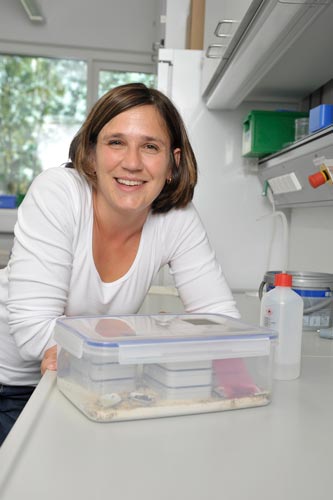September 9, 2013
Walther Arndt Award to ant researcher Sylvia Cremer
Award for IST Austria professor Sylvia Cremer for research on the social immune system of ants • Prize by German Zoological Society commemorates Walther Arndt, biologist and victim of the Nazi regime

Sylvia Cremer, Assistant Professor at the Institute of Science and Technology Austria (IST Austria), receives this year’s Walther Arndt Prize of the German Zoological Society (Deutsche Zoologische Gesellschaft, DZG). The award will be presented at the 106th annual meeting of the DZG, taking place September 13 to 16 in Munich. Since 1991, the scientific award endowed with 5’000 Euro is awarded to a young researcher every two years.
Sylvia Cremer studies the collective disease defenses of ant societies. In addition to the individual immune systems of colony members, ants and other social insects have evolved a collective “social immune system”, which allows them to combat the high risk of infection in close social groups. Sylvia Cremer’s research group recently showed that cleaning ants not only remove infectious particles from the body surface of infected animals, but also disinfect them with their poison (Current Biology 2013). Nevertheless, caring animals often get infected when cleaning colony members affected with fungal pathogens. These infections, however, are micro-infections, which stimulate the immune system of the cleaning ants and so protect them from disease (PLoS Biology 2012).
The Walther-Arndt Prize commemorates the Berlin zoologist and physician Walther Arndt, who in 1944 was executed for his open, critical views. With this award, the DZG intends to remember both the political courage as well as the scientific achievements of Walther Arndt, who conducted studies on sponges and hydrobiology. Since 1991, the Walther-Arndt Prize is awarded every two years for outstanding scientific work on a zoological topic.
Since 2010, Sylvia Cremer conducts research at IST Austria. She was a member of the Young Academy of the Leopoldina and the Berlin-Brandenburg Academy of Sciences, and is a member of the Young Academy of the Austrian Academy of Sciences.



